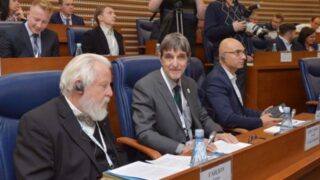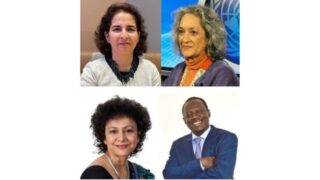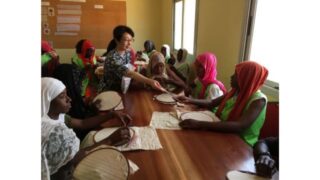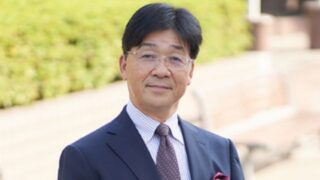“Victims” tell their stories to politicians and the media. But their relatives claim (and prove) they are not true.
by Massimo Introvigne
Article 1 of 3.


On July 8, 2022, former Japanese Prime Minister Shinzo Abe was assassinated by a man who claimed he wanted to punish him for his cooperation with organizations connected with the Unification Church, a group he accused of having ruined his mother by soliciting from her excessive donations. As a series in Bitter Winter demonstrated, the Unification Church (now called Family Federation for World Peace and Unification, FFWPU), together with Abe, was a victim of an assassin who had also planned to kill its leader. However, an anti-cult campaign persuaded most Japanese and international media that the FFWPU was responsible for the crime, spectacularly reversing the roles of victim and perpetrator.
The witch hunt continues, supported by fake news and, as usual in these case, by apostate ex-members. Japanese media have reported that Prime Minister Fumio Kishida himself will meet with one such apostate, a woman who uses the pseudonym of “Sayuri Ogawa.” She spoke against the Unification Church after the Abe assassination, including at a meeting organized by the Constitutional Democratic Party of Japan on August 23 and at the Foreign Correspondents’ Club of Japan on October 7, telling a story that in many point is demonstrably false.
When Ogawa spoke at the Foreign Correspondents’ Club both her parents and the FFWPU requested that the conference be cancelled, based on both the fact that what she had already said elsewhere was false and slanderous, and the parents’ concern that the event may further damage the mental health of somebody who had described herself on Twitter as suffering from “dissociative identity disorder, depression, and panic attacks.” This was presented at the same event as evidence that the FFWPU was trying to intimidate a brave witness. However, Ogawa’s mother signed a 17-page statement with 25 pages of documents as enclosures, a copy of which is in possession of Bitter Winter, where her real story was told.


This was not simply a conflict of narratives between a mother and a daughter. The mother challenged the daughter to produce alternative documents, including bank records, supporting her version. None was produced, while all claims in the mother’s statement are confirmed by the corresponding evidence.
In a nutshell, Ogawa claimed that she grew up in the Unification Church, in which her father served as a minister and her mother as a staff member, and suffered poverty because of their donations to the religious organization.
She was systematically bullied in school. She was also terrorized about sex by her puritanical parents, who broke with her when she decided to live with a man who was not a member of the Unification Church.
She attended events of the Unification Church, she said, both in Japan and Korea and, as a consequence of the absurdity of the doctrines she was exposed to and of the rituals, developed mental problems and had to be hospitalized. Her parents had confiscated the money she had made through her part-time work while she was a student, and took advantage of her hospitalization to withdraw what she had kept in a bank account. They used this money for further donating to the Unification Church. She is now persuaded that the Unification Church/FFWPU is an evil organization, she said. She called for its dissolution and for the introduction in Japan of an anti-cult law modeled on the one that exists in France.
The latter request proves that Ogawa is being coached by the anti-cult movement. Before the Abe assassination, she never exhibited an interest in campaigns against the “cults” and surely had never heard of the French law. The only part of her story that is true is that her parents served in the Unification Church, although only her father was a minister there.


Her mother has never heard that she was bullied in school. The mother can prove she won awards and was sent to participate in national competitions for gifted students, which is hardly compatible with the picture of a marginalized and bullied pupil. The mother does admit that the daughter was taught about the ideal of remaining pure until marriage, but claims that it is not true that the parents broke with her after she decided to marry outside of the Unification Church. Photographs show both parents smiling and celebrating at her wedding.
Her family could not have made extravagant donations to the Unification Church even if it wished to, the mother says, because it was always poor. Money issues between parents and their adult children are always unpleasant, but the mother states and documents that she received financial help from Ogawa only once, when the daughter had made some money in high school from her part-time work. The mother borrowed from her 160.000 yen (US $1,085, not the millions Ogawa now mentions), which were not used for donations to the Unification Church but helped paying the school fees for her siblings. Contrary to what Ogawa claims, her father and siblings later reimbursed that amount, and she received, or took without asking, more money from the family’s accounts during the years when she needed money for living with her boyfriend after she had left her parents’ home.
Most importantly, the mother proved that before the assassination of Abe and the press conference of July 12 of the National Network of Lawyers Against Spiritual Sales, Ogawa never criticized the Unification Church and had words of affections and love for her parents.
As late as September 2017, i.e. after according to her account she had left the FFWPU, Ogawa sang at a FFWPU event, proving her attitude against the church was not hostile. It was only after July 2022 that Ogawa started introducing herself as an activist ex-member of the Unification Church and asking money from her parents as indemnification for her alleged abuse and victimization.
Her story kept changing. She even added she had been sexually harassed by a Unification Church group leader and had reported the incident to her mother, who claims she has never heard such a story. She claimed her parents had been clearly victims of the so-called “spiritual sales” or high-priced donations the FFWPU is accused of, and that she saw in their home some of the artifacts Unification Church members used at one stage to sell for high prices and others devotees used to receive when they made significant donations.
However, the mother claims Ogawa knows both that her family never had money for expensive purchases and they had inherited some artifacts from a deceased co-religionist, without paying any money for them.
Ogawa also became overnight an expert on Unification Church matters, quoting Reverend Moon urging Japanese members to borrow money and even sell their bodies to increase donations to the Unification Church in a sermon she said that he delivered well before she was born. Reverend Moon never said anything of the sort. In the sermon that she mentions, which was given in Korea, he urged a male Korean member (and not a Japanese one) using a common Korean expression to devote himself “body and soul” to the church’s work, which obviously had nothing to do with prostitution. Ogawa was referring to a sermon from 1988, whereas she was born in 1995. Obviously, she could not have heard the sermon, and once again she was just repeating what she had heard from her “handlers” in the anti-cult movement. She tried to answer this objection by claiming that her father quoted these words in his own sermons. Her father denies it categorically, and also observes that Ogawa attended services for children and students, where the matter of donations was not discussed at all.
I believe Ogawa, with her story of mental health problems, is only partially responsible for the falsehoods she has spread to the media. Much more responsible are those who take advantage of her condition and use her as a weapon in their campaigns against the Unification Church/FFWPU.


Ogawa is not the only person whose story is told incorrectly. The problems of Yamagami himself, Abe’s assassin, are all ascribed to his mother’s donations to the Unification Church. That members of the Unification Church, when her relatives protested, gave back to her 50% of her donations, and the relatives, including Tetsuya Yamagami, signed a release that they had no further claims, is never mentioned. Nor is it mentioned that Yamagami’s problems also derived from the suicide of his father, which happened before the mother joined the Unification Church and had no connection with it.
The stories of other so-called “victims” who claim their marriages collapsed because their spouses were members of the Unification Church and donated to it are also contradicted by the same spouses who tell different stories, often involving domestic violence. All these fake news are used to fuel a campaign aimed at the legal dissolution of the FFWPU, as we will see in the subsequent article of this series.









